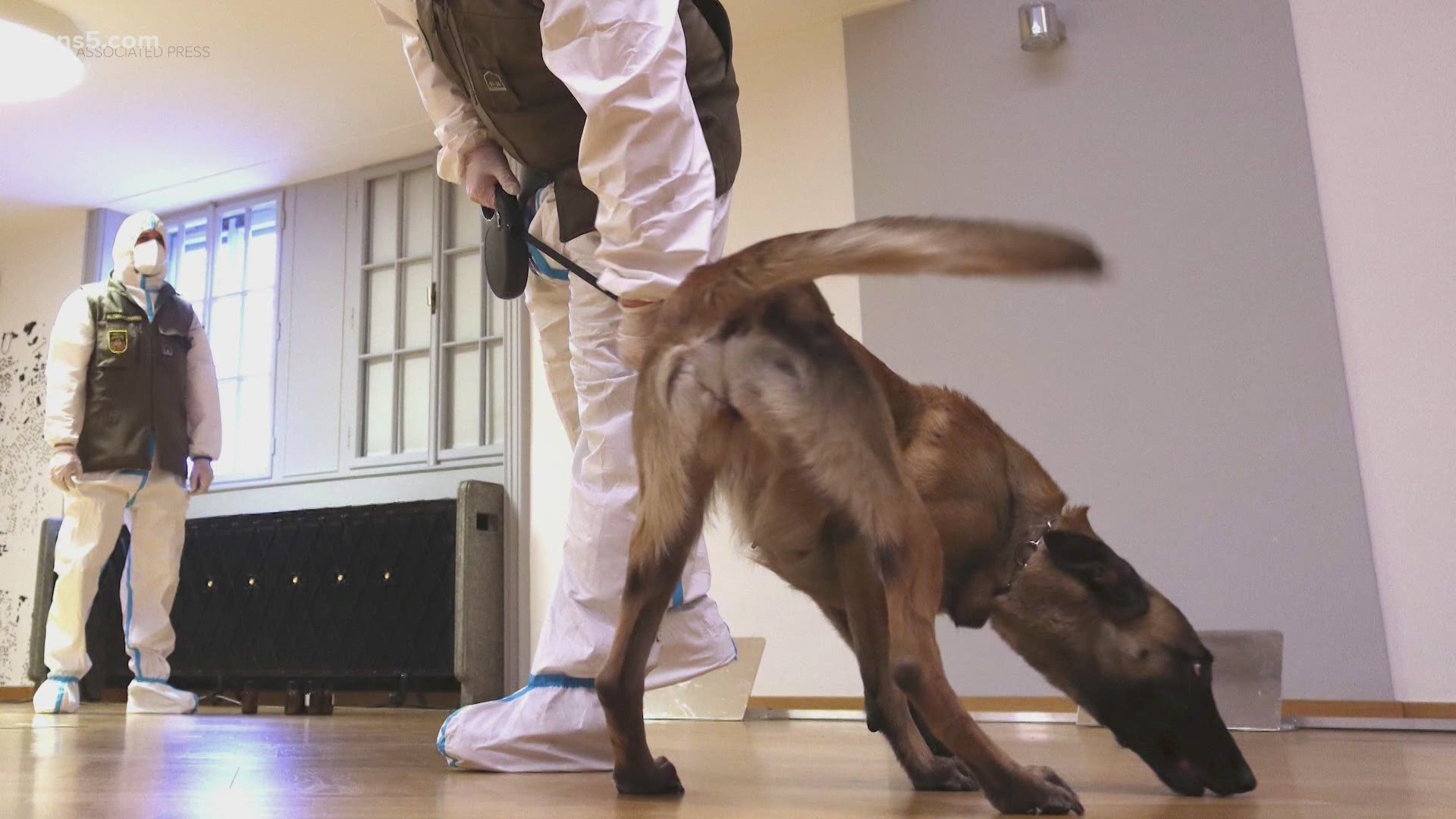AUSTIN, Texas — From airports around the world to Miami Heat basketball games, reports have come in about dogs being used to detect asymptomatic carriers of COVID-19.
But does it really work? Let’s verify a claim and show you our process.
Question and answers:
Q. Can dogs really detect COVID-19 in humans?
A. Studies show it’s possible for a dog to detect COVID-19 in an asymptomatic person, but researchers note the studies used a small pool of samples and each study had limits. More research is needed.
The process:
In Finland and Dubai, the COVID-19 sniffing dogs screen airport travelers.
In Florida, they’re deployed to screen Miami Heat fans who plan to watch the game in-person.
Researchers published a peer-reviewed study in PLoS ONE in December 2020.
The authors used two locations to conduct the study — Paris, France, and Beirut, Lebanon.
The six dogs all received the same training and testing protocols. They also had a background in detection.
Three dogs had a background in detecting explosives, one in search and rescue and the other two in colon cancer detection.
Researchers used underarm sweat to learn if dogs could detect a change in odor.
Ninety-five COVID-positive individuals and 82 COVID-negative individuals participated, producing 177 sweat samples.
The success rate per dog ranged from 76% to 100%.
The PLoS ONE researchers noted limitations in their study but wrote, “The results of this proof-of-concept study are a promising first step providing some evidence that dogs may be able to detect COVID-19 positive samples collected from the axillary sweat of individuals showing clinical COVID-19 symptoms and who are positive on SARS-CoV-2 RT-PCR or PCR tests.”
Another peer-reviewed paper published in BMC Infectious Disease shows a 94% accuracy in its dog detection. Researchers trained eight dogs for five days.
The COVID-19 samples came from saliva samples and tracheobronchial secretion samples from hospitalized COVID-19 patients.
Researchers noted, “The current study results are promising, although they should be regarded as preliminary and suitability for this detection method in the field can only be acquired after further research has been conducted.”
In Austria, the head of the Military Dog Centre said COVID-19 detecting dogs would be a great use at international airports.
Col. Otto Koppitsch said the dog gives the result immediately where regular tests take minutes or days.
“This is definitely an area which one should keep an eye on,” Koppitsch said.
At Florida International University, four dogs – including two rescue dogs – are trained to detect the COVID-19 on surfaces. Researchers said the dogs show a “greater than 90% accuracy.”
An ongoing study from the University of Helsinki is still underway. The dogs sniffed more than 4,000 passengers at Helsinki Airport.
Plus, the London School of Hygiene & Tropical Medicine intends to study how dogs can detect COVID-19 and “scale up operations on a global scale, by working with dog training agencies, and the military and police forces, to deploy dogs in as many countries as possible.”
So we verified, the research shows dogs can be trained to detect COVID-19 in humans, however more research is needed to know if it would work for everyone.
PEOPLE ARE ALSO READING:

